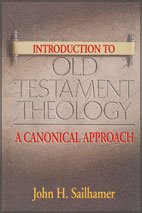What better way to learn about using the OT in Sermons than reading the Apostle's sermons? Easier said than done--there's a bunch of sermons in Acts!! So this post will be just the non-Pauline sermons. We'll save Paul for next week. What I've done is put down the reference, the speaker, the occasion, the explicit OT references, and the outcome. Then I looked specifically at what they are doing with the OT in their sermons.
Reference: Acts 2:14-41
Preacher: Peter
Occasion: Pentecost
Explicit OT References: Joel 2 (“pour out my Spirit…”), Ps 16 (“not leave my soul in Hades…”)
Outcome: 3000 people get saved
What is he doing with the OT:
Pentecost fulfills (or is like: “this is that”) Joel 2
David, who was a prophet, wrote Psalm 16 about Jesus’ resurrection
Reference: Acts 3:11-26
Preacher: Peter
Occasion: Healing of the lame man at Solomon’s Colonnade
Explicit OT References: Dt 18:15-19 (“God will raise up a prophet like me…listen to him”); Gen 12:3 (“all the families of the earth will be blessed”)
Outcome: 5000 get saved and Peter and John go to jail for the night
What is he doing with the OT:
All the prophets predicted that the Messiah would have to suffer (v. 18)
From the beginning the prophets spoke of the time of restoration to come through the Messiah (v. 21)
Jesus is the promised prophet “like Moses” and those who do not listen to Him will be cut off from Israel
All the prophets from Samuel onwards spoke about these days (as much as I am tempted to say “these present days” it probably goes back to v. 21 to mean “the times of the restoration of all things” when the Messiah returns)
It is through Jesus that the Abrahamic blessings go to the whole earth
Reference: Acts 4:8-12
Preacher: Peter
Occasion: Peter and John just spent the night in jail and are facing the Sanhedrin
Explicit OT Reference: Ps 118:22 (“the stone that the builders rejected”)
Outcome: They are warned not to preach Jesus
What is he doing with the OT:
Jesus is the fulfillment of Ps 118—He was rejected (i.e. crucified) and has now become the chief corner stone (through the resurrection)
Reference: Acts 4:23-31
Prayer: Apostles
Occasion: Peter and John were just released from the Sanhedrin
Explicit OT Reference: Ps 2 (“why do the Gentiles rage?”)
Outcome: They are all filled with the Spirit, the house is shaken, and they are filled with boldness
What are they doing with the OT:
“God’s Anointed” in Ps 2 is Jesus
The “Gentiles” that are raging are identified as Herod, Pilate, the Gentiles, and interestingly enough the people of Israel
Reference: Acts 7:1-53
Preacher: Stephen
Occasion: Stephen is accused of blasphemy and brought before the Sanhedrin
Explicit OT References: too many to mention—from Genesis, Exodus, Deuteronomy, Amos, and Isaiah
Outcome: Stephen tells them they are just as stubborn as their ancestors and they stone him to death for it
What is he doing with the OT:
This is a very interesting sermon on several levels. Stephen basically retells the history of Israel but with an agenda. He wants to point out to them that at every instance in her history, Israel has balked against God’s messengers—even when these messengers had supernatural signs to back up their message.
Most of the sermon is about their rejection of Moses
Here’s what gets me: there is no mention of Jesus!!! At all!! There is no fulfillment language at all. There is no call to repentance! He just tells them that they are just like their forefathers and they kill him for it. So did Stephen “preach Christ”?
Reference: Acts 8:29-35
Preacher: Philip
Occasion: The Ethiopian Official
Explicit OT Reference: Isa 53
Outcome: Ethiopian gets saved
What is he doing with the OT:
Philip tells him the “good news about Jesus beginning from that Scripture” (v. 35)
Conclusion
Nothing except the Stephen sermon should surprize us. The preachers are Jewish and the audience is Jewish and was familiar with the OT. The common theme is that Jesus is the fulfillment of the OT expectation. This was the message they needed to understand. The signs and wonders were done in the name of Jesus and were proof that death could not hold Him. He was who He claimed to be and what the prophets were longing for.
Stephen's sermon struck me because it was so much different that the others. It was a sermon designed to harden not convert. Peter had already said that there is salvation is no other name but Jesus, and that name "Jesus" is not in the sermon. There is no fulfillment langauge, no invitation to believe. Just judgment.
Subscribe to:
Post Comments (Atom)




4 comments:
Fascinating. Thanks for the overview. It sounds a lot like a Christocentric hermeneutic. Careful...in some circles (read, "schools") you might get in trouble for putting so much emphasis on Christ. ;)
Many historians err by assuming "If it wasn't written down, it didn't happen." Be careful not to assume everything that was said was written down. Very interesting overview. Don't keep us in suspense too long on Paul's sermons.
Jim
Jim,
That's a great point, I'm glad you brought that up. I guess I needed to be a bit clearer on my scope and purpose. The apostles certainly preached about a lot more than is recorded in Acts, and Luke most likely did not even write down every word of every sermon of the ones he did include. From the get-go I should have mentioned that I only was focusing on only the actual record of the sermons not the entire body of work of the apostles that was not inscripturated. That body of work, though turning the world upside down in its own day, is not necessary for us today since the Spirit did not choose to preserve it for us as Scritpure. We have, for instance, no perserved sermons of John, Andrew, or James even though Scritpure tells us that they preached. In fact, we only have a sampling of Peter's, Paul's, and Stephen's recorded sermons. That's a very slim selection! However, we have all we need. What is necessary for our edification has been recorded. It is the inscripturated record that is of importance. It is from that record that we must draw from and learn.
Thanks for the helping me be clearer!
Post a Comment